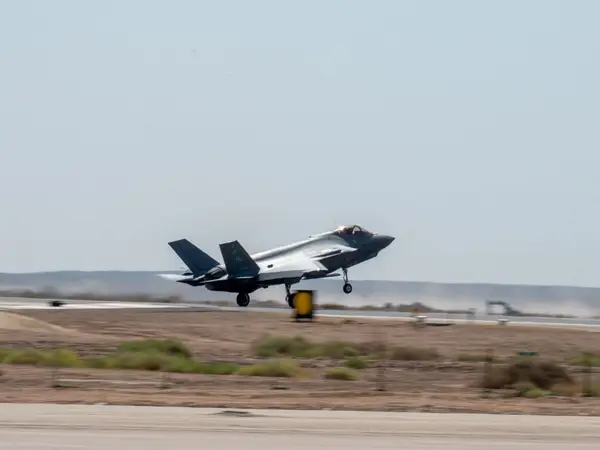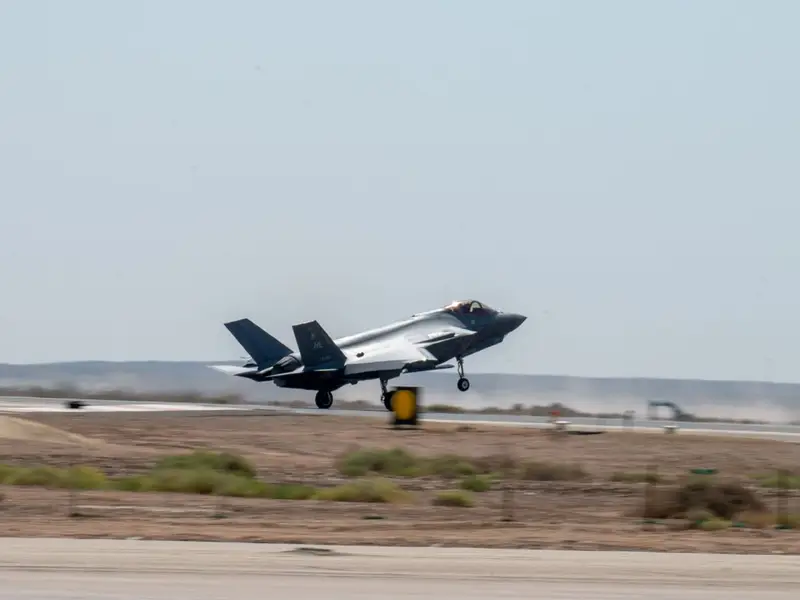A sizeable force of a dozen US F-35s have arrived in the Middle East as part of a series of deployments to deter Iran and Russia from provocative actions.
As the US Navy intervened to thwart an Iranian attack on two vessels in early July, Russian warplanes in Syria have also stepped-up harassment of US aircraft.
“The F-35’s increased capacity and capability will allow the U.S. to fly in contested airspace across the theater if required,” Air Forces Central (AFCENT) spokesperson Col. Mike Andrews said in a statement.
In two incidents July 23 and 26 in Syria Russian warplanes released flares that damaged two US drones similar to an incident in March when a Russian fighter crashed into a US MQ-9 over the Black Sea, forcing US operators to down the drone in the sea.
The Pentagon announced July 17 that it was sending additional F-35 and F-16 fighter jets, along with a warship to the Middle East, in a bid to monitor key waterways in the region following Iran's seizure and harassment of commercial shipping vessels in recent months.
Last week the Pentagon also announced the deployment of the 26th Marine Expeditionary Unit to the Persian Gulf, including three Navy vessels with USS Bataan leading the group with almost 4,000 sailors and Marines.
The stealthy multirole F-35 fighters deployed come from the 421st Expeditionary Fighter Squadron of Hill Air Force Base, Utah. There are now four fighter squadrons in CENTCOM: two F-16 squadrons, one A-10 squadron, and one F-35 squadron.

